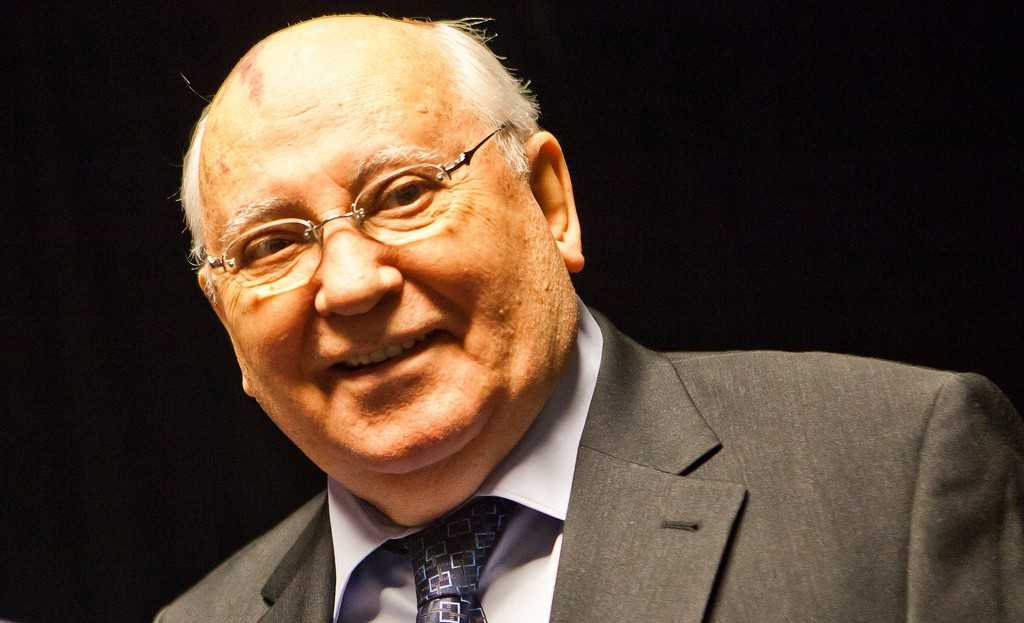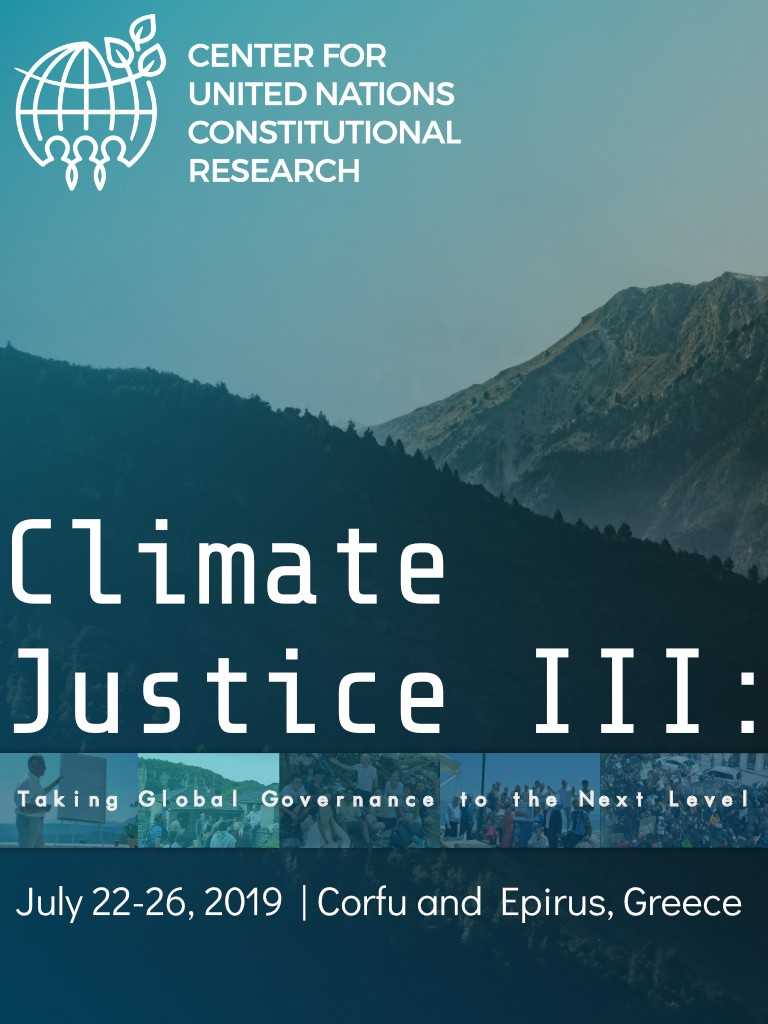Mikhail Gorbachev
Former President | Soviet Union (Russia)
Despite everything, it is still in our power to avoid
nuclear confrontation.
The fate of the INF treaty has politicians and ordinary people worried on every continent. I am also concerned, and not only because I signed that treaty with former U.S. President Ronald Reagan in Dec. 1987. These events are yet another manifestation of the dangerous and destructive trends in world politics facing us today.
The main idea guiding us on the path to signing the original treaty was expressed in a joint statement with the United States, adopted at our first meeting in Geneva: “A nuclear war cannot be won and must never be fought.”
That INF Treaty was the first step, and it was followed by others — the Strategic Arms Reduction Treaty (START I) and mutual steps towards eliminating a significant part of all tactical nuclear weapons. The two states revised their military doctrines to reduce their reliance on nuclear weapons, slashing their number by more than 80 percent from their highpoint during the Cold War.
The process started at that time had an affect beyond nuclear weapons alone. The Chemical Weapons Convention was signed in 1997 and the countries of Eastern and Western Europe agreed on a drastic reduction of their armed forces and weapons. This was the “peace dividend” from which everyone benefited — Europeans most of all — as a result of the end of the Cold War.
Ever since, the INF Treaty has served the security of our country, excluding the possibility of weapons capable of a “decapitation strike” being deploying near our borders.
I have to mention here that senior Russian officials sometimes criticized the treaty unfairly, lamenting the destruction of the missiles and claiming that they would still be useful to us. I always felt compelled to respond to such statements.
In recent years, however, Russia has taken an unequivocal position in favor of preserving the INF Treaty. I hope this position reflects a deeper understanding of it’s importance.
A great danger, however, now looms over all that we have achieved in the years since the end of the Cold War. The decision of the United States to withdraw from the INF Treaty threatens to reverse the progress made.
And this is not the first such step. The U.S. refused to ratify the Comprehensive Nuclear-Test-Ban Treaty (CTBT) and the country’s unilateral decision in 2002 ended the Anti-Ballistic Missile Treaty (ABMT).
Of the three pillars of global strategic stability — the ABMT, INFT, and START I — only one remains, the New START signed by former Russian President Dmitry Medvedev and former U.S. President Barack Obama in 2010, and its fate is unclear. Judging by statements that representatives of the U.S. administration have made, that, too, could “become a thing of the past.”
What has happened? What threat is compelling the United States to dismantle a system for limiting nuclear arms that has served the world for decades?
What is World Federalism?
World Federal Government (WFG)


THE SAN FRANCISCO PROMISE
Click to Learn More

According to the text in the INF Treaty, “Each party shall, in exercising its national sovereignty, have the right to withdraw from this Treaty if it decides that extraordinary events related to the subject matter of this Treaty have jeopardized its supreme interests. It shall give notice of its decision to withdraw to the other Party six months prior to withdrawal from this Treaty. Such notice shall include a statement of the extraordinary events the notifying Party regards as having jeopardized its supreme interests.”
That is, a country taking the step of leaving the treaty should explain to the world community what has compelled it walk away from it.
Where is this threat to the “supreme interests” of the security of the U.S. — a country whose military spending is at least three times greater than that of all of its potential rivals? Has the U.S. communicated that threat to the world community, the public, and the UN Security Council? No, it has not.
Instead, it has leveled complaints against Russia for alleged violations that even experienced specialists have difficulty understanding. And it has presented those claims in the form of an ultimatum.
The U.S. justifies its position by pointing to the fact that other countries — particularly China, Iran, and North Korea — possess medium-range missiles. This is not a convincing argument, however. The arsenals of the U.S. and Russia still account for more than 90% of the world’s nuclear weapons. In this sense, the two countries really are still “superpowers.”
It is possible to suggest that Washington’s decision to withdraw from the treaty is based not on the reasons cited by U.S. leaders, but on something very different: Washington’s desire to free itself from any limitations on its weapons and to achieve absolute military superiority.
Solving Global Problems
We can work together to make the world better
“We have more money than anybody else by far,” President Trump recently proclaimed, “we’ll build it [the nuclear arsenal] up until they come to their senses.”
Presumably, the U.S. wants to re-arm in order to dictate its will to the world. What else could it be?
But this is an illusory goal, a vain hope. It is impossible for one country to achieve hegemony in the modern world. This destructive turn of events will lead to a very different result: The destabilization of the global strategic situation, a new arms race, and greater chaos and unpredictability in world politics.
The security of all countries, including the United States, will suffer. This is the nature of the uncontrollable process that this decision will set in motion.
Trump said that the U.S. hopes to conclude “a new treaty that would be much better.”
What sort of treaty does he mean — one catered for building up nuclear weapons perhaps? Nobody should be fooled by such a promise. The same is true of the statement by U.S. Secretary of State Mike Pompeo, who said that “the U.S. has no plans for the immediate deployment of new missile weapons.”
It only means that the U.S. does not have such missiles yet. And these statements clearly failed to convince the Europeans, who were understandably alarmed. Everyone remembers the “missile crisis” of the early 1980s, when hundreds of Soviet SS-20 and U.S. Pershing missiles were deployed on this continent. And everyone understands that a new round of the missile race could be even more dangerous.
I welcome efforts by European countries to save the INF Treaty. The European Union urged the U.S. to “consider the consequences of its possible withdrawal from the INF on its own security, on the security of its allies and of the whole world.”
Paths to a World Federation
There are many paths to a better world, but they all meet at world federation

German Foreign Minister Heiko Maas, who warned that “ending the treaty would have many negative consequences,” travelled to Moscow and Washington in an effort to find a solution to the problem. It is unfortunate that this attempt did not produce any results, but such efforts must continue — too much is at stake.
Those who would like to put the treaty to rest claim that the world has undergone major changes since it was concluded and that the agreement has simply become outdated as a result. The first half of that argument is certainly true, but the second is deeply mistaken. The subsequent changes in the world require not that we abandon the treaty — that laid the foundations of international security after the end of the Cold War — but that we take further steps towards the ultimate goal: The elimination of nuclear weapons.
This is where we should focus our efforts.
I would like to address all Americans, and particularly the Republican and Democratic members of Congress. It is unfortunate that the divisive domestic political situation in the U.S. in recent years has led to the breakdown of the entire U.S.-Russian dialogue, including on nuclear weapons. It is time to overcome inter-party disagreements and begin serious talks. I am confident that Russia is open for them.
With those relations at a standstill, we need new ideas capable of getting them moving again. The expert community can play a major role in this effort. In an article recently published by Rossiiskaya Gazeta and the Washington Post, former U.S. Secretary of State George Shultz and I called for the creation of a nongovernmental forum of Russian and U.S. experts to discuss the changes that have occurred in security-related issues over the past decades and to develop proposals for our respective governments.
Most important now is for politicians to make a serious change in their thinking. Militarized mindsets have led to military campaigns in Yugoslavia, Iraq, Libya, and other countries. Their effects will be felt for a long time to come.
Politics, not weapons is the key to solving security problems. Although the disturbing events of recent weeks leave no room for complacency, we should not panic yet. We need to understand the situation as it develops and, most importantly, take action to prevent the world from sliding into an arms race, confrontation, and ultimately hostility. Despite everything, I believe it is still in our power.
Original Publisher
The Moscow TimesMikhail Gorbachev was the General Secretary of the Central Committee of the Soviet Union in 1985-1991 and President of the Soviet Union in 1990-1991. A Russian-language version of this article first appeared in Vedomosti. The views and opinions expressed in opinion pieces do not necessarily reflect the position of The Moscow Times.
DWF News




